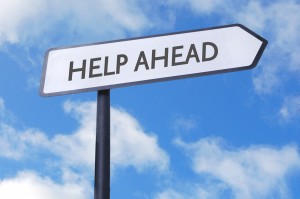 Couples Therapy has a Killer.
Couples Therapy has a Killer.
A frequent problem we see for couples in our couples therapy practice in Denver is that it’s just so hard to see a way out of something when you are in the midst of it. Most couples wait an average of six years before entering couples therapy, and by this time there are a lot of stories that they really buy into. They feel like this is just the “way it is.” They are convinced that they have tried everything, and they probably have (until they get into couples therapy). The issues that have plagued their relationship have been going on for so long that they just seem like they are dead ends, and the couple may be pondering whether they are actually right for each other, whether they are “falling out of love”, etc.
This is called hopelessness, and we need to see it for what it is. It is an evil, energy sucking, distraction that sits on your shoulder and tells you that you shouldn’t even try. That you don’t have the energy to try. That nothing is going to change in your relationship, it’s not going to work. Hopelessness is a relationship killer for obvious reasons, but did you know that it’s a major barrier to getting effective therapy services?
Couples who are hopeless about their relationship often:
-
Don’t seek couples therapy, or don’t seek it in time.
-
Don’t do the internal work necessary to really look at the issues and create change, because they are already checked out.
-
Unwittingly sabotage the couples therapy or undermine their partner’s attempts to make positive changes by resisting them.
I think the most harmful effect of hopelessness on the relationship is that it becomes the lens through which we see everything. Your current state of feeling about the relationship becomes the filter through which you see all the issues and possible solutions. Like rose-colored glasses, but… not rosy. It’s the relationship is half dead phenomenon.
The trick is that you have to sidestep hopelessness so that it doesn’t rob you of the chance to improve the relationship. This is difficult since you need to see something positive to become hopeful. Unless you kill hopelessness.
It’s easy to just go along with the hopeless thoughts and not question whether they are even true. Many of our thoughts are not true, or at least are not the absolute, undeniable, unchangeable, fully objective truth. In couples therapy, there are a lot of things that challenge your perception of reality, because you are both deepening your experience of each other to create more understanding, connection, and trust. So why not start on that path before couples therapy by working on your hopelessness?
Here’s how to kill hopelessness:
1. Notice it.
Notice that you are having thoughts that things are pointless, or whatever your mind tells you about why this is just not going to work.
2. See it for what it is: a thought.
Thoughts are not always true, and even if they are, they aren’t always helpful. Realizing that, strong as they are, they are still just thoughts, can free you a bit to act (such as pursuing couples therapy even if you aren’t sure it will work, instead of using hopelessness as an excuse).
3. Ask yourself what’s scary about letting hopelessness go.
Is it protecting you from trying and getting hurt? From getting your hopes up? From showing that you are hurting?
4. Bring it out into the light of day.
Talk about the hopelessness with your couples therapist. Chances are, your partner is feeling some of that as well, and a good couples therapist knows that it’s there and wants to help you slay it.
This is by no means an exhaustive list, but as a couples therapist I just wish that I could kill hopelessness. It’s such a demon. It’s a symptom of the problem, not the predictor of whether the problem is fixable. And we can do a whole lot in spite of hopelessness if we realize that we are caught in its grips and don’t want to let it run the show.
If you are feeling hopeless in your relationship and just aren’t sure about whether couples counseling could help, we invite you to have a free consultation with one of our wonderful couples therapists in Denver (Lakewood) where you can chat about what couples therapy could do for you.
 While there are times that this is needed, I’ll give the perspective that I have as a couples counselor on whether you should seek both individual counseling and couples counseling.
While there are times that this is needed, I’ll give the perspective that I have as a couples counselor on whether you should seek both individual counseling and couples counseling.

 Did you know that counseling for anxiety and relationship issues (as well as a host of other things) can re-wire your brain?
Did you know that counseling for anxiety and relationship issues (as well as a host of other things) can re-wire your brain? If you are preparing to have a free therapy consultation, congrats on taking the first step to changing things!
If you are preparing to have a free therapy consultation, congrats on taking the first step to changing things!




